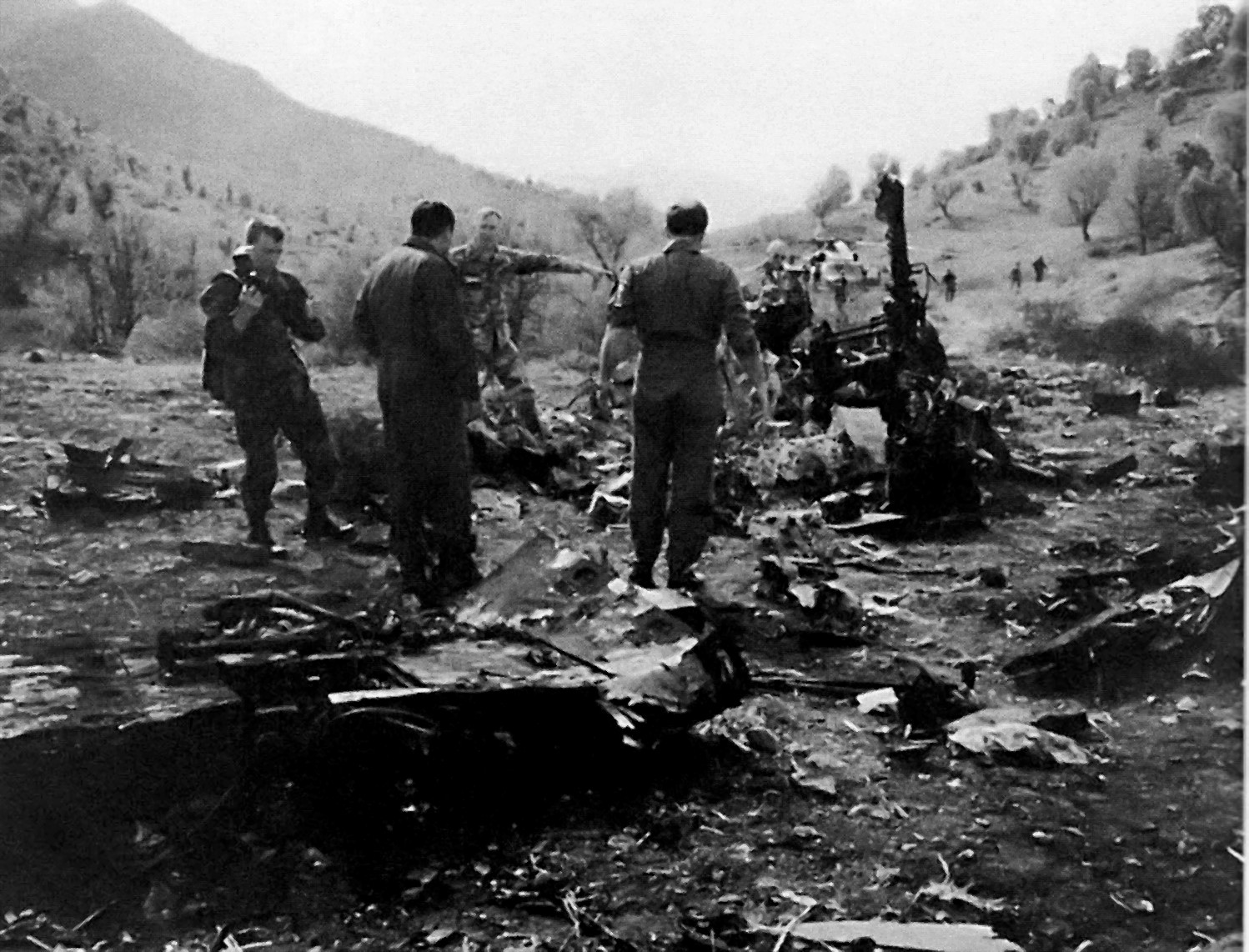1994 Black Hawk shootdown incident
 The 1994 Black Hawk shootdown incident, sometimes referred to as the Black Hawk Incident, was a friendly fire incident over northern Iraq that occurred on 14 April 1994 during Operation Provide Comfort (OPC). The pilots of two United States Air Force (USAF) F-15 fighter aircraft, operating under the control of a USAF airborne warning and control system (AWACS) aircraft, misidentified two United States Army UH-60 Black Hawk helicopters as Iraqi Mil Mi-24 "Hind" helicopters. The F-15 pilots fired on and destroyed both helicopters, killing all 26 military and civilians aboard, including personnel from the United States, United Kingdom, France, Turkey, and the Kurdish community.
The 1994 Black Hawk shootdown incident, sometimes referred to as the Black Hawk Incident, was a friendly fire incident over northern Iraq that occurred on 14 April 1994 during Operation Provide Comfort (OPC). The pilots of two United States Air Force (USAF) F-15 fighter aircraft, operating under the control of a USAF airborne warning and control system (AWACS) aircraft, misidentified two United States Army UH-60 Black Hawk helicopters as Iraqi Mil Mi-24 "Hind" helicopters. The F-15 pilots fired on and destroyed both helicopters, killing all 26 military and civilians aboard, including personnel from the United States, United Kingdom, France, Turkey, and the Kurdish community.A subsequent USAF investigation blamed the accident on several factors. The F-15 pilots were faulted for misidentifying the helicopters as hostile. Also, the crew members of the AWACS aircraft were blamed for their inaction in failing to exercise appropriate control and for not intervening in the situation. In addition, the identification friend or foe (IFF) systems had not functioned to identify the helicopters to the F-15 pilots. Furthermore, USAF leaders had failed to adequately integrate U.S. Army helicopter operations into overall OPC air operations. As a result of the investigation several USAF officers received administrative discipline but only one, Jim Wang, an AWACS crew member, was tried by court-martial, in which he was acquitted.
As a result of complaints by family members of the victims and others that the military was failing to hold its personnel accountable, the U.S. Senate and U.S. House conducted their own investigations into the shootdown and the U.S. military's response to it. Also, Ronald R. Fogleman, the USAF's new Chief of Staff, conducted his own review of the actions taken by the USAF against the officers involved in the incident.
Fogleman's investigation led to several of the officers involved in the incident receiving further administrative discipline. The U.S. Department of Defense (DoD) subsequently refused U.S. Senate subpoenas for four USAF officers to be interviewed for the Senate investigation, which was never publicly released. The U.S. House investigation, conducted in part by the Government Accountability Office (GAO), found that the military investigative and judicial systems had operated mostly as designed, but also noted that the DoD had refused access to key witnesses. Provided by Wikipedia
-
1
-
2
-
3by Xiaoyu Hu, Fang Huang, Magdalena Szymusiak, Xuebi Tian, Ying Liu, Zaijie Jim WangGet full text
Published 2016-01-01
Article -
4
-
5
-
6by Zizhao Yang, Li Li, Haihong Hu, Mingcheng Xu, Jingkai Gu, Zaijie Jim Wang, Lushan Yu, Su ZengGet full text
Published 2016-11-01
Article -
7
-
8by Ellie H. Jhun, Nilanjana Sadhu, Xiaoyu Hu, Yingwei Yao, Yingwei Yao, Ying He, Ying He, Diana J. Wilkie, Diana J. Wilkie, Robert E. Molokie, Robert E. Molokie, Robert E. Molokie, Robert E. Molokie, Zaijie Jim Wang, Zaijie Jim WangGet full text
Published 2019-02-01
Article -
9by Guodong Zhang, Xiaoli Wang, Tzu-Yang Chung, Weiwei Ye, Lauren Hodge, Likun Zhang, Keefe Chng, Yong-Fu Xiao, Yixin Jim WangGet full text
Published 2020-10-01
Article -
10by Gao Sun, Charles V. Jackson, Karen Zimmerman, Li-Kun Zhang, Courtney M. Finnearty, George E. Sandusky, Guodong Zhang, Richard G. Peterson, Yi-Xin (Jim) WangGet full text
Published 2019-03-01
Article -
11
-
12
-
13
-
14
